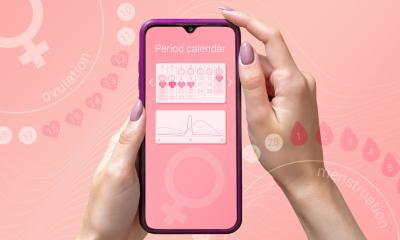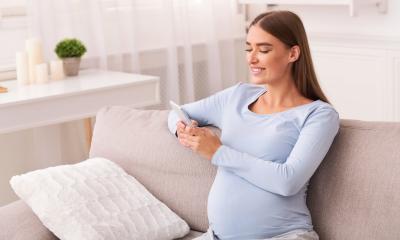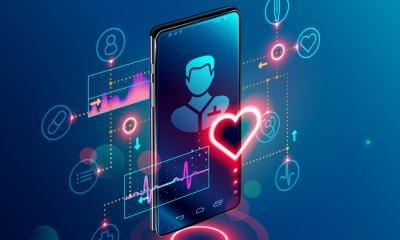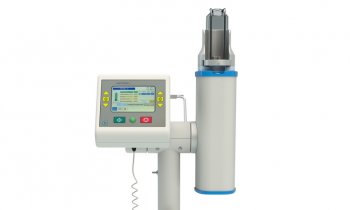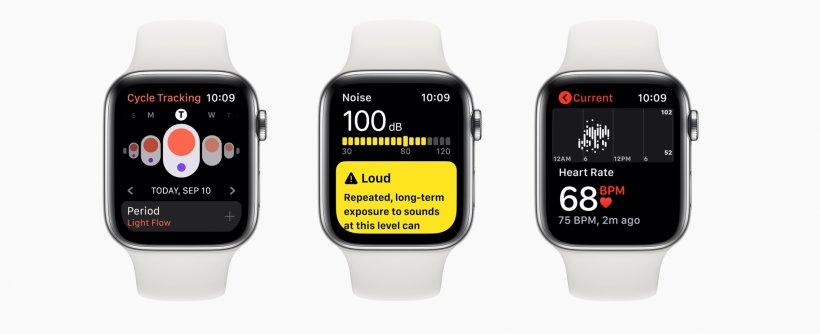
Image source: Apple
News • Mobile Health
Apple Watch: health studies to benefit from new smartwatch app
During its latest keynote presentation, tech giant Apple announced cooperations for health studies. The latest model of their smartwatches are to be key in their execution.
Apple announced the three medical studies in partnership with leading US academic and research institutions. With the wearable users' contribution, Apple predicts study participaion on a scale unlike anything before.
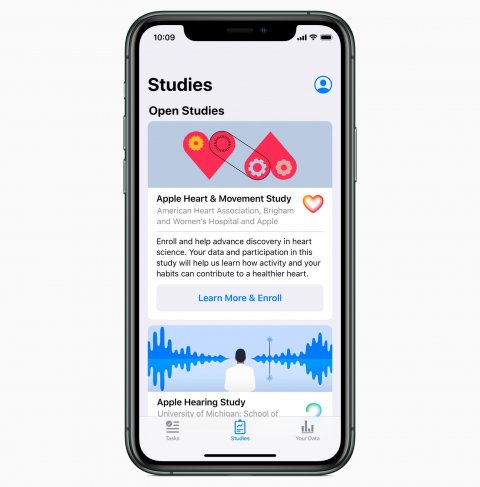
Image source: Apple
The studies will be available on the new Research app, which was announced along the new Apple Watch 5. This approach is set to help achieve the next generation of innovative health products.
The Research app will be available as a free download in the App Store later this year.
In 2017, Apple committed itself in a similar fashion with a granc-scale cardiac health study. “We found that we could positively impact medical research in ways that help patients today and that make contributions that will benefit future generations,” said Jeff Williams, Apple’s chief operating officer. The company announced participation in the following studies:
Apple Women’s Health Study
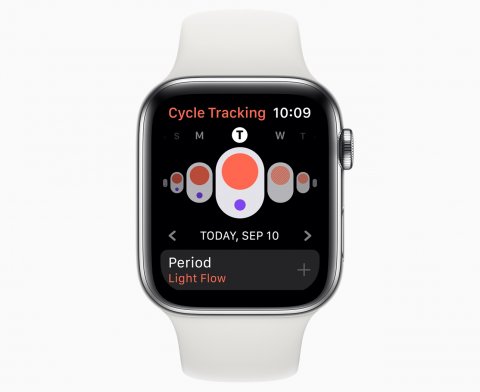
Image source: Apple
In partnership with Harvard T.H. Chan School of Public Health and the NIH’s National Institute of Environmental Health Sciences (NIEHS), Apple has created the first long-term study of this scale focused on menstrual cycles and gynaecological conditions.
This study will inform screening and risk assessment of conditions like polycystic ovary syndrome (PCOS), infertility, osteoporosis, pregnancy and menopausal transition.
Apple Heart and Movement Study
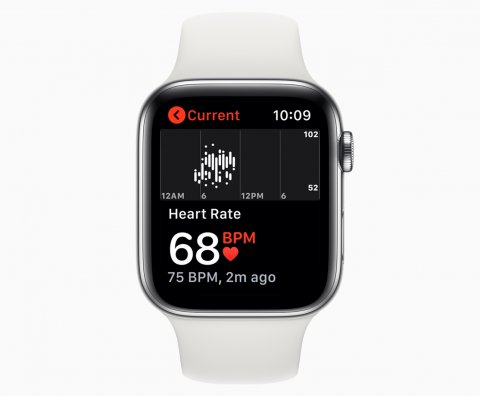
Image source: Apple
Apple is partnering with Brigham and Women’s Hospital and the American Heart Association on a comprehensive study of how heart rate and mobility signals — like walking pace and flights of stairs climbed — relate to hospitalisations, falls, heart health and quality of life in order to promote healthy movement and improved cardiovascular health.
Apple Hearing Study
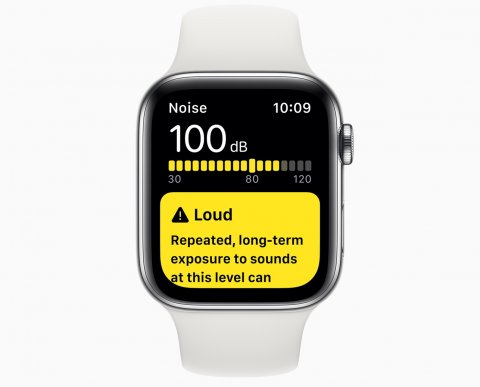
Image source: Apple
Alongside the University of Michigan, Apple is examining factors that impact hearing health. The Apple Hearing Health Study is the first of its kind to collect data over time in order to understand how everyday sound exposure can impact hearing. The study data will also be shared with the World Health Organization (WHO) as a contribution toward its Make Listening Safe initiative.
Recommended article

News • Healthy listening
WHO aims to prevent hearing loss among young people
Nearly 50% of people aged 12-35 years – or 1.1 billion young people – are at risk of hearing loss due to prolonged and excessive exposure to loud sounds, including music they listen to through personal audio devices. Ahead of World Hearing Day (3 March), the World Health Organization (WHO) and the International Telecommunication Union (ITU) have issued a new international standard for the…
Women make up half of the world’s population, yet even today there has been limited investment in studying their unique health needs
Michelle A. Williams
Apple’s support of the medical research community began with the introduction of ResearchKit and CareKit, which expanded the pace and scale at which healthcare could be studied and provided. Apple used ResearchKit to create the Apple Heart Study, which was the largest study of its kind and illustrated the impact virtual, large-scale studies can have on medical research by examining atrial fibrillation to provide validation for the irregular rhythm notification feature on Apple Watch.
“Women make up half of the world’s population, yet even today there has been limited investment in studying their unique health needs,” said Michelle A. Williams, a reproductive epidemiologist and dean of the faculty at the Harvard T.H. Chan School. “[The Apple Women's Health] study, unprecedented in scope, will greatly advance our understanding of the biological and social determinants of women’s health, and lead to better health outcomes.”
“This is an exciting opportunity for NIEHS researchers to contribute to the study design and use the resulting data to answer novel questions, not only important to women of reproductive age, but to women of all ages,” said Dale Sandler, Ph.D., chief of the NIEHS Epidemiology Branch.
“We are excited about this unique opportunity to partner with Apple to determine how everyday activities affect our hearing,” said DuBois Bowman, dean of the University of Michigan School of Public Health. “The information gleaned from this partnership will be critical for us to address the public health impact of various noise exposures on hearing loss in the United States.”
“At the American Heart Association, we are a relentless force for a world of longer, healthier lives, and we are committed to educating and empowering people to be proactive in all areas of their heart health and general well-being,” said Nancy Brown, CEO of the American Heart Association. “We believe that emerging technology solutions that seek to provide deeper health insights offer great potential in getting us there. We are collaborating with Apple and Brigham and Women’s Hospital on the Apple Heart and Movement Study to explore the correlation between a broad range of physical activities and a person’s overall heart health to ultimately understand risks and interventions to improve health.”
“We are excited about this unique opportunity to partner with Apple to determine how everyday activities affect our hearing,” said DuBois Bowman, dean of the University of Michigan School of Public Health. “The information gleaned from this partnership will be critical for us to address the public health impact of various noise exposures on hearing loss in the United States.”
“The World Health Organization is pleased to note the announcement of the Apple Hearing Study which will contribute toward our Make Listening Safe initiative by improving our understanding of users’ listening behaviors,” said Dr. Shelly Chadha, technical officer of Prevention of Deafness and Hearing Loss at the World Health Organization. “With over a billion young people who could be at risk of hearing loss due to unsafe listening, WHO is addressing this challenge through raising awareness and setting new standards for safe listening. The knowledge gained through this study will contribute to future public health action in this field.”
Source: Apple
12.09.2019



